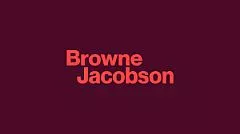- within Media, Telecoms, IT and Entertainment topic(s)
- in United States
- within Media, Telecoms, IT, Entertainment, Environment and Law Department Performance topic(s)
- with readers working within the Insurance industries
In our Summer update, we promised we'd have more to say about advertising "less healthy food" (LHF) in the Autumn update. Now it's Autumn and we weren't wrong!
What's all this again? A quick recap
There were already restrictions in place in TV and non-broadcast advertising in relation to foods that meet the high in fat, salt or sugar (HFSS) threshold set out in technical guidance from the Department of Health and Social Care. Laws were passed to restrict the advertising of specified less healthy foods.
"Less healthy foods" are foods which:
- fall into legally defined categories and
- meet the HFSS threshold.
Examples of the categories include savoury snacks, morning goods, confectionery and ready meals (crisps, pastries, chocolates etc).
The application of restrictions prohibiting advertising for identifiable less healthy foods at any time in paid for ads online and between 5am and 9pm during TV and on-demand programmes were delayed after it became clear that a legal definition for the exemption for "brand advertising" was necessary.
Where are we now?
Since we've been away, the draft Statutory Instrument (SI) has been consulted on and the final law laid. The restrictions on TV and on-demand advertising and the prohibition against online advertising will not apply to "brand advertisements" as specifically defined. The definition is quite detailed but, in a nutshell, a brand advertisement is an "advertisement that promotes a brand, including the brand of a range of products" but does not:
- Depict a specific less healthy food or drink product (unless it's just the product's name or logo and the name existed before 16 July 2025);
- Promote a brand the name of which is also the name of a specific less healthy food or drink product (unless the name existed before 16 July 2025); or
- Include a realistic image of a food or drink product itself (not the packaging) and is visually indistinguishable from a specific less healthy food or drink product.
Now there's a specific exemption for "brand advertising" in law, CAP was able to publish new draft guidance on the advertising restrictions (as opposed to "unpausing" the previous consultation). The consultation on the guidance and the wording of the new rules in the Ad Codes closed on 9 October at 5pm.
The voluntary period, whereby advertisers and broadcasters agreed to apply the restrictions early started on 1 October. The advertising restrictions will formally apply from 5 January 2026. The ASA has confirmed it will not investigate complaints about ads before 5 January.
What other restrictions apply?
The advertising restrictions discussed above are UK-wide. As of 1 October, multi-buys and buy-one-get-one-free promotions are outlawed in England as the prohibition on volume discounts and promotions came into force.
Wales will apply the same restrictions from 26 March 2026. The Scottish government has confirmed that restrictions will be applied but we are yet to see the legislation from Holyrood. Time will tell for Northern Ireland.
What should businesses do to prepare?
1. If you haven't already, assess your food and drink ranges and confirm the nutrient score.
2. Ensure everyone knows which products are:
- not rated HFSS at all;
- HFSS; or
- LHF
3. Train relevant teams so that they are aware of the restrictions and where they apply.
4. Update marketing campaigns, check media buy plans and make sure no one's left behind.
The content of this article is intended to provide a general guide to the subject matter. Specialist advice should be sought about your specific circumstances.


